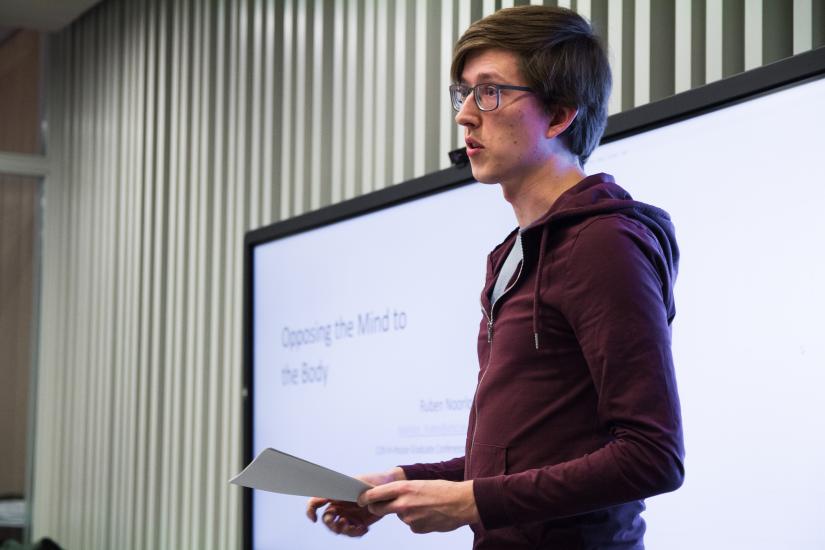
The Department of Philosophy cordially invites you to the Public Defense of the PhD Dissertation
by Ruben Noorloos (PhD candidate, Department of Philosophy) on "Mind-Body Parallelism and Spinoza’s Philosophy of Mind"
Members of the Defense Committee:
Supervisor: Michael Griffin (CEU)
External examiner: Martin Lin (Rutgers University)
Internal Examiner: Katalin Farkas (CEU)
Chair: Hanoch Ben-Yami (CEU)
Abstract
Mind-body parallelism is the view that mind and body stand in the same “order and connection,” as Spinoza put it, or that corresponding mental and physical states have corresponding causal explanations in terms of other mental and physical states. This dissertation investigates the nature and role of mind-body parallelism, as well as other forms of parallelism, in Spinoza’s philosophy of mind. In doing so, it also considers how Spinoza’s views relate to current discussions. In present-day philosophy of mind, mind-body parallelism is almost never defended. It is seen as a historical dead-end with insurmountable problems. By contrast, I argue that parallelism powerfully responds to the post-Cartesian mind-body problem (which remains with us today) and that it points a way forward in current debates.
The dissertation contains five independent chapters. After an introduction that situates parallelism in relation to both Spinoza’s time and to present discussions, Chapter 1 presents an argument for parallelism aimed at a present-day audience. Chapter 2 discusses Spinoza’s own arguments for parallelism. Both chapters help to clarify what parallelism is, in part by distinguishing between several versions of the view. Chapter 3 discusses what is often considered parallelism’s most problematic feature, its rejection of mind-body interaction. I argue that by distinguishing between the post-Cartesian context in which Spinoza wrote and present-day discussions, we can see that parallelism is compatible with mental causation. Chapters 4 and 5, finally, discuss specific ways in which parallelism is at work in Spinoza’s view of the mind. In Chapter 4, I argue that parallelism is at work in Spinoza’s interesting and distinctive positions on the nature of agency and motivation. In Chapter 5, I show the role of parallelism in his representationalist theory of consciousness. A guiding thread throughout the dissertation is that parallelism presents a distinctive and interesting way to combine realism, non-reductionism and naturalism in relation to those features of human self-understanding that seem difficult to fit into a naturalistic worldview.
Interested in receiving updates about the events of the Department of Philosophy? Sign-up to its mailing list here.